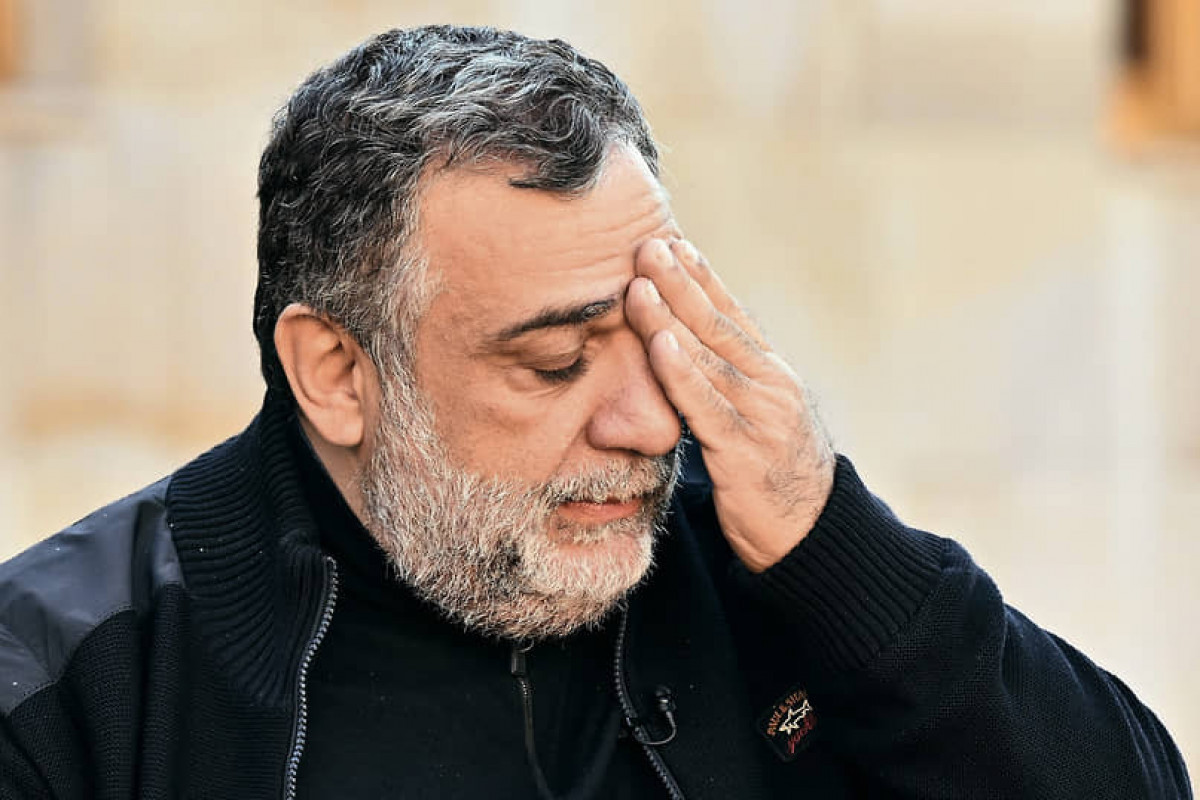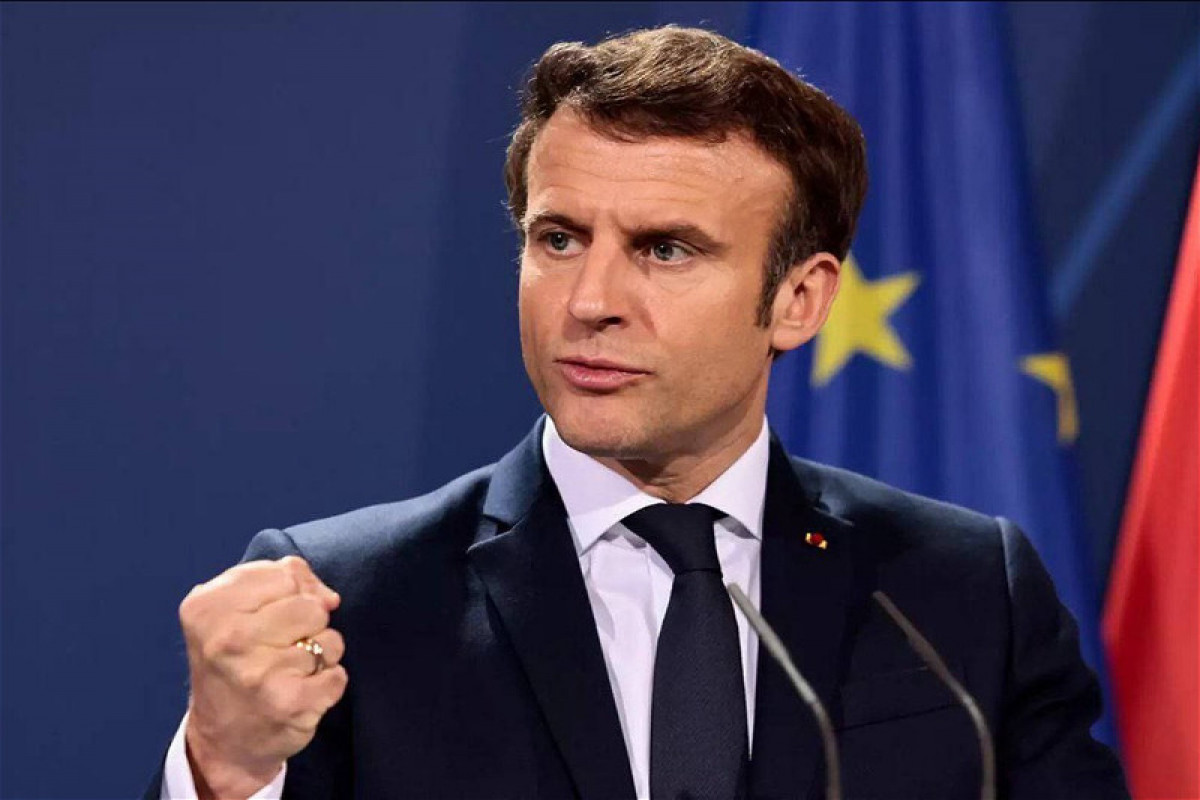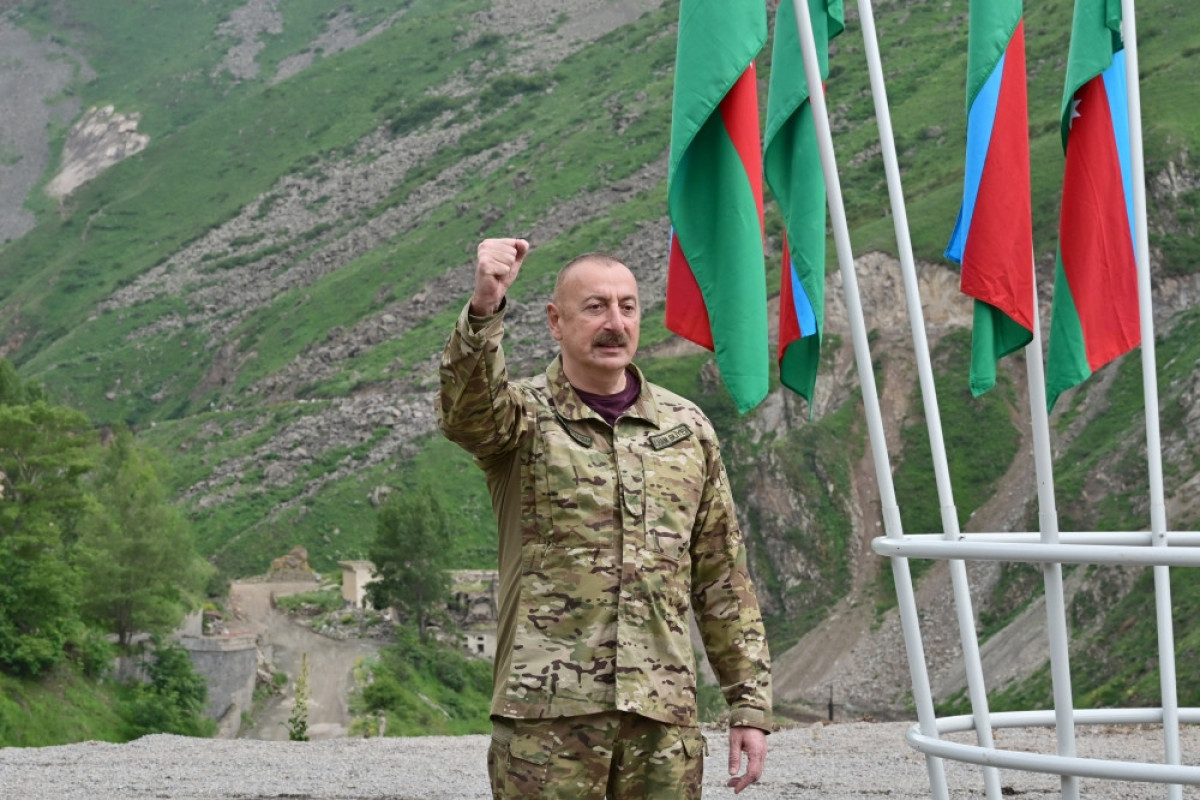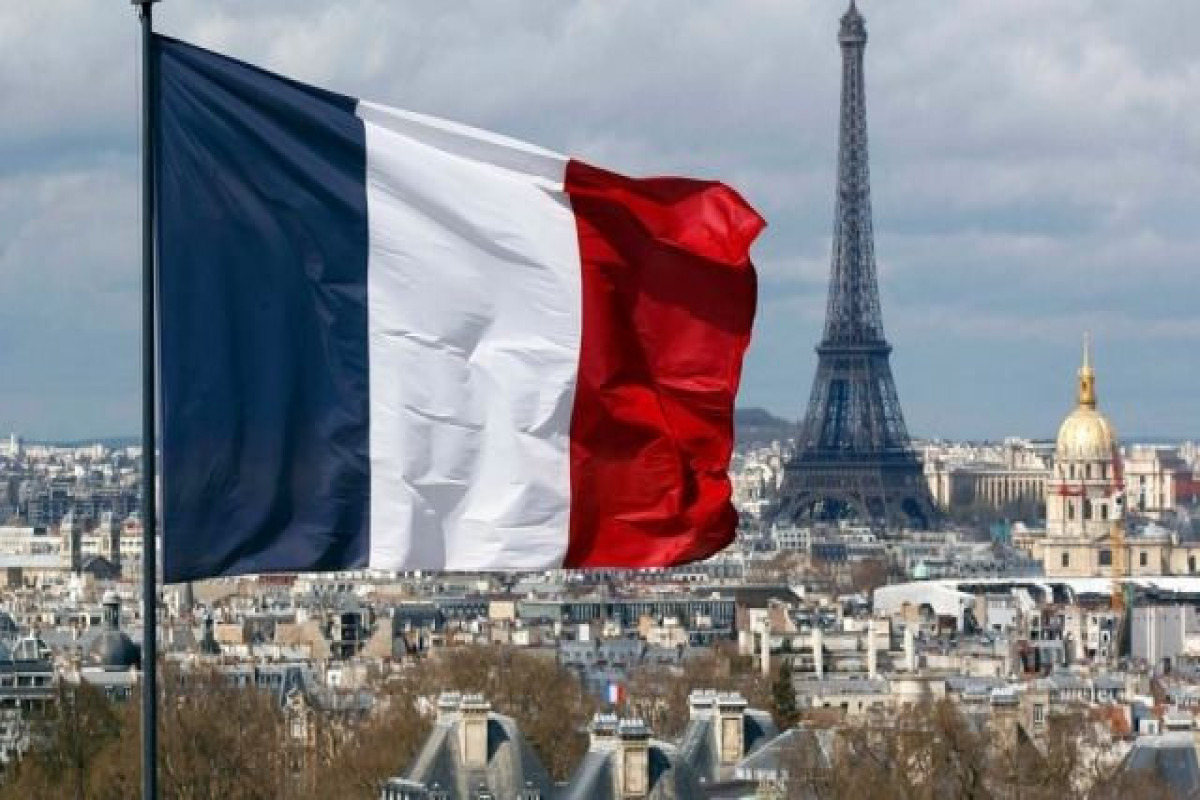Behind the us-azerbaijan row – ANALYSIS

It has been obvious for some time that the Caspian region is not Washington’s main area of focus right now. Its attention has been patchy, and the area has been defined principally through the prism of Russia. Now, this strategic drift has led to potentially serious damage to the relationship with Azerbaijan. How the US decides to proceed could have serious implications for its Caspian policy.
The Turkish-Armenian rapprochement, when it emerged a year ago, caused serious consternation in Baku. Azerbaijan felt under-appreciated by Turkey, supposedly a key partner and close ally. Baku’s position was, and remains, that opening the Turkish-Armenian border would reduce pressure on Yerevan to withdraw troops from occupied territories of Azerbaijan.
Harsh rhetoric from Azerbaijan at being insufficiently consulted was followed by tangible effects. Gas tariffs and transit negotiations with Ankara collapsed, and Baku signed gas supply deals with Russia and Iran. Facing also a significant public protest at home Ankara backed down, explicitly linking the Armenian rapprochement to progress in Karabakh.
The initial round of the thaw between Ankara and Yerevan was a Turkish initiative. But the US strong pressure on Turkey to open the borders before resolution of the Nagorno-Karabakh conflict has led to steadily increasing concern in Baku.
For Azerbaijan this seriously undermines Washington’s impartiality as a Minsk Group mediator and threatens to undermine the careful balance in the South Caucasus. How, the argument runs, can the US be seen as an impartial mediator, when it is actively backing a process which affects one party to the conflict to the detriment of the other (RFE/RL, April 21)?
So far, so frustrating for Azerbaijan. As Steve LeVine noted, the failure to provide a US ambassador to Baku for eight months has added a symbolic insult to the injury; it has also, critically, deprived Washington of a high-level diplomatic channel to the Azerbaijani government (Oil and Glory, April 21). Although experienced Caspian hand Matt Bryza (formerly the US Minsk group co-chair) has been slated for the post, the eight-month gap during a critical period in relations is alarming.
However, the ambassadorial post has remained vacant. And Washington’s “parallel tracks†stance has also been clear for months. The additional trigger behind Azerbaijan’s anger, it seems, was the lack of an invitation to the Nuclear Security Summit in Washington on April 12-13 (Washington Post, April 13), where President Obama held talks with Armenian President Sargsyan and Turkish Prime Minister Erdoghan on the issue directly concerning Azerbaijan. This fact and the fact that Azerbaijan was the only state from the South Caucasus not receiving an invitation to the summit fuelled Baku’s sense of isolation.
Given that the summit addressed nuclear non-proliferation, and particularly Iran’s suspected covert nuclear programme, Azerbaijan has grounds for irritation. In 2008 it halted Russian equipment destined for Iran’s Russian-built nuclear plant at Bushehr, which was travelling through Azerbaijan (Eurasianet, May 4 2008). Citing concern over whether the shipment violated international sanctions on Iran’s nuclear programme, the shipment was detained for weeks, causing irritation in both Moscow and Tehran. Azerbaijan also hosts the Qabala radar station, which was proposed as a central element of a joint US-Russian missile defence system.
The snub was taken in Baku as confirmation of Washington’s pro-Armenian bias, which had been reinforced earlier in the year by the active lobbying of the Armenian diaspora against Turkey and Azerbaijan. Baku’s response was furious. Joint military exercises with US were cancelled (ISN, April 26). A series of high-profile articles by senior government figures were published, criticising US policy as “increasingly pro-Armenian†and “short-sightedâ€.
The public nature of the response may be blustering, but there are good grounds for believing that the threats to “reconsider†relations are genuine (Reuters, April 16). For one thing, Baku has positively reacted to Tehran’s mediation proposal in Karabakh. The Iranian foreign minister is reportedly to hold a meeting with his Armenian and Azerbaijani counterparts soon.
Russia may be the biggest beneficiary. Despite technically being in a similar position to the US – it is a Minsk Group mediator which supports a “parallel tracks†approach – Moscow is far more finely attuned to regional politics and to Azerbaijan’s frustration. It is also showing more willingness to offer concrete assistance, such as lucrative energy contracts and the possibility of increased diplomatic and economic pressure on Armenia.
Turning to Russia, let alone Iran, would not necessarily be in Baku’s long-term interest but it is a genuine risk. Azerbaijan has invested a lot of political capital in allying with the West over the last sixteen years. If this is ignored, Moscow’s embrace may look far more appealing.
America’s apparent failure does not appear to be a genuine attempt to abandon Azerbaijan (unlike the deliberate cooling of ties with President Saakashvili’s Georgia, seen as a liability after the 2008 war with Russia). It seems more likely to be a lack of institutional focus. Lacking a coherent Caspian policy, Washington has been driven by other forces, chiefly the Armenian diaspora and the need to restore relations with Russia.
But the implications are concerning. Apart from its vast energy resources and energy transit capacity Azerbaijan is central to a raft of other US interests in the region. Most obviously these include two of the Obama Administration’s priorities, Russia and Iran. Azerbaijan is also key to the ‘central corridor’ through which NATO supplies to Afghanistan pass. Whilst the northern corridor remains underused and susceptible to Russia’s whims, maintaining the central route is essential.
Washington’s lack of attentiveness to the relationship with Baku –the summit snub, the lack of an ambassador, and most critically the approach to Nagorno-Karabakh – is alarming in itself. But, given its repercussions, it also suggests that the US has not developed a fully integrated strategy for some of its main foreign policy concerns. This is perhaps the most worrying implication of the current dispute.
Political

An attempt to create a "Dove of Peace" from Vardanyan — Struggle over the wealth of the separatist billionaire-ANALYTICS

Macron is not sincere in his statements - France allocates less military support to Ukraine than Baltic countries-ANALYSIS

Ilham Aliyev achieved to return Gazakh's 4 villages to Azerbaijan without single bullet or bloodshed -ANALYSIS

Parisian stance: France is experiencing diplomatic stress in its relations with Azerbaijan and taking chaotic steps -ANALYTICS
NEWS FEED
Minister: Armenia ready for opening of communications with Azerbaijan and Türkiye
Baku hosts first meeting of Councilof the Turkic Culture and Heritage Foundation -PHOTO
President Ilham Aliyev received representatives of the Mormon Church of the United States and the Stirling Foundation
Solemn ceremony on Azerbaijani Special Forces’ 25th anniversary held - VIDEO
Azerbaijani FM meets with Algeria's Minister of Foreign Affairs and the National Community Abroad
Teenage boy killed in London sword attack
Azerbaijan to relocate 20 families to Shusha city in early May
Export revenues of Azercosmos drop
Azerbaijan State Dance Ensemble wins international festival
Azerbaijan's MFA retorts French Minister of Interior
Azerbaijani FM meets with Lebanon's Minister of Foreign Affairs and Emigrants
Hungary blocks EUR 10 mln. aid from EPF to Armenia because of Azerbaijan- Media
Israel will enter Rafah with or without Gaza hostage deal, Netanyahu says
Outstanding Azerbaijani lawyer living in Russia seriously injured in Ukraine war-UPDATED
Main Anti-Corruption Directorate conducts operations at Republican Sanitary Quarantine Center
Azerbaijan favors bilateral and direct peace negotiations with Armenia - Foreign Minister
Vienna hosts event organized by Baku Initiative Group
Doha Declaration was adopted, support for Azerbaijan-Armenia normalization process was reflected
Azerbaijan as the main transportation hub of Eurasia - North-South or East-West? -ANALYSIS
Armenia parliament rejects opposition's draft statement on border delimitation with Azerbaijan
Azerbaijani FM meets with his Qatari counterpart
Risk of bird flu spreading to cows outside US, says WHO
Azerbaijan unveiled names of 73 identified missing persons- LIST
Azerbaijan's State Commission clarifies reason for late identification of those in unknown graves
State Commission: Azerbaijan to develop plan for burial of 73 identified missing persons
Expertise on human remains are carried out only within country- Prosecutor General's Office
Azerbaijan State Security Service clarifies possibility of error in identification based on remains of corpses
Remains of 608 persons have been identified from Azerbaijan's liberated territories - Prosecutor General's Office
Azerbaijan's State Commission discloses information regarding return of remains of missing persons to their families
Azerbaijan's MES holds event on nuclear and radiation safety
Human remains in mass graves were buried without any individualization – Azerbaijan’s Prosecution
French ambassador returned to Azerbaijan-EXCLUSIVE
Secretary General of the Council of Europe welcomes delimitation process between Azerbaijan and Armenia
Azerbaijan clarifies what methods were used to determine identity of discovered human remains
Identities of 73 missing people and their burial places determined: Azerbaijan's State Commission
Indonesia's Ruang volcano erupts, raising alerts
Azerbaijani Ombudsman's Office representatives visit Main Clinical Hospital
Russian attack on Kharkiv kills 1, injures 2
Indonesia may offer dual citizenship to attract overseas workers, minister says
MES International Search and Rescue Team representatives participated in int'l event
Azerbaijan's Central Bank to announce its next decision on interest rate corridor
6 killed, 1 injured in west Afghanistan mosque shooting
President Ilham Aliyev received Chairman of MUSLIM Institute of Pakistan
Israeli army identifies Lebanese attack, strikes back in border areas last night
International Criminal Court considering issuing arrest warrant for Netanyahu-Media
5 grenades were found in Azerbaijan's Sumgait-VIDEO
TikTok ban in EU is ‘not excluded,’ von der Leyen says
Price of Azerbaijan oil drops
Azerbaijan relocates 65 residents to Lachin city, 4 residents to Zabukh village of Lachin district-PHOTO
Jake Paul vs Mike Tyson officially sanctioned as professional fight

